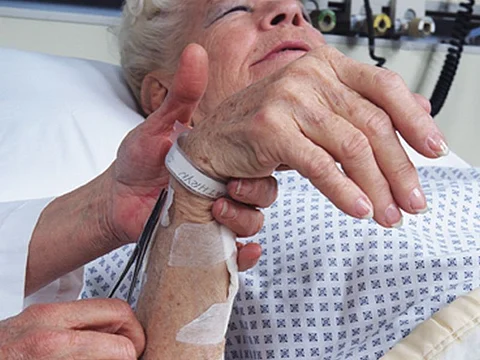TUESDAY, Nov. 22, 2016 (HealthDay News) -- For long-term care facility residents, high-dose vitamin D3 supplementation is associated with reduced incidence of acute respiratory infection (ARI) but increased incidence of falls, according to a study published online Nov. 16 in the Journal of the American Geriatrics Society.
Adit A. Ginde, M.D., M.P.H., from the University of Colorado in Aurora, and colleagues conducted a randomized controlled trial among 107 long-term care residents aged 60 years and older. Participants were randomized to either a high-dose group that received monthly supplement of 100,000 IU vitamin D3 (55 participants) or a standard-dose group that received a monthly placebo or monthly supplement of 12,000 IU vitamin D3 for those taking 400 to 1,000 IU or <400 IU/day, respectively, as part of usual care (52 participants).
The researchers found that the high-dose and standard-dose groups had 0.67 and 1.11 ARIs per person-year (incidence rate ratio, 0.60; P = 0.02). The high-dose group had more falls (1.47 versus 0.63 per person-year; incidence rate ratio, 2.33; P < 0.001). Fractures were uncommon in both groups (0.10 versus 0.19 per person-year in the high-dose and standard-dose groups, respectively; P = 0.31). Neither group experienced hypercalcemia or kidney stones.
"Monthly high-dose vitamin D3 supplementation reduced the incidence of ARI in older long-term care residents but was associated with a higher rate of falls without an increase in fractures," the authors write.
Full Text (subscription or payment may be required)


